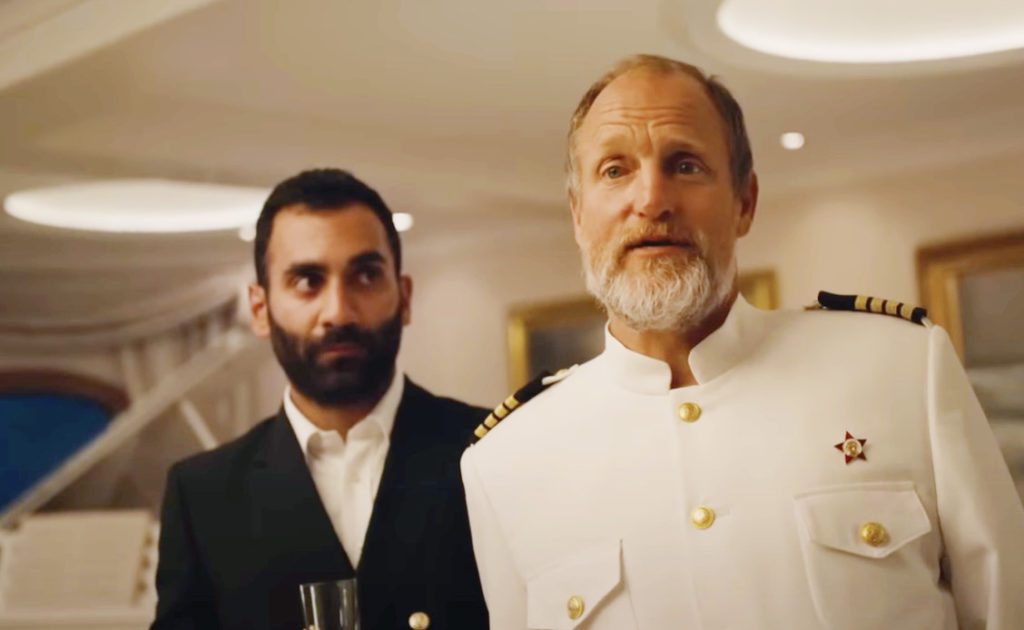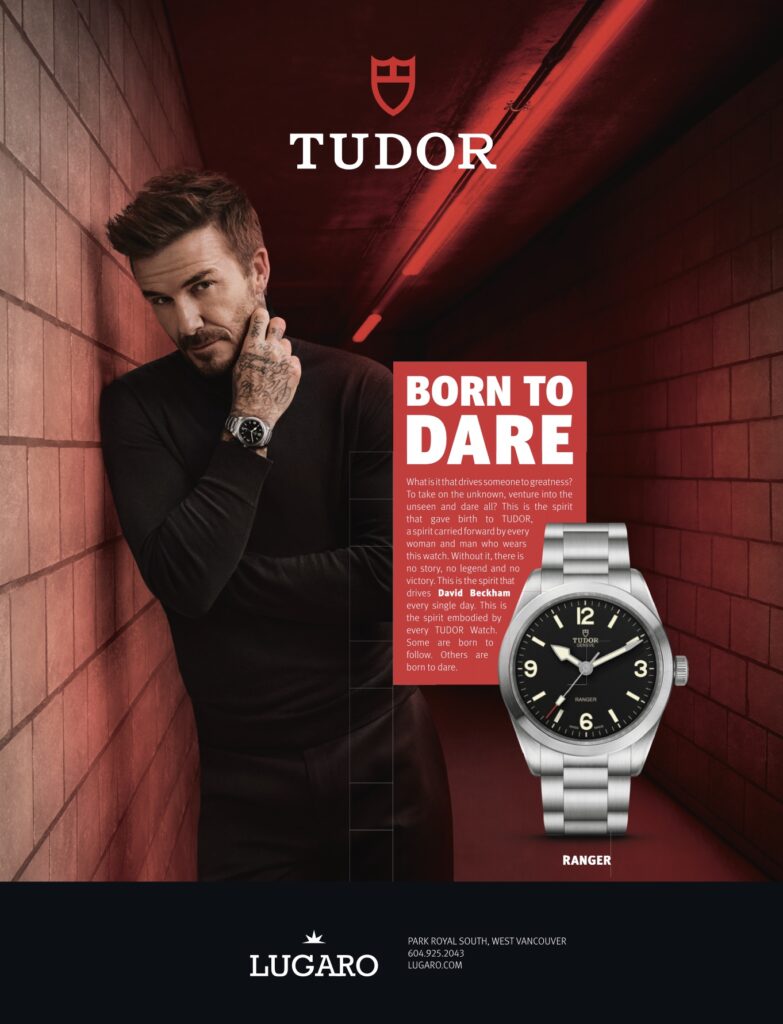CAT: Welcome everybody. Catherine Barr here. We’re back with another episode of West Vancouver Magazine / Turner Magazine podcast. You can find us on Apple. You can find us on Spotify. But coming up, you’re going to find us on the red carpet because I have another fabulously exciting guest here with me today. It is Kyle Fostner, executive director of the Vancouver International Film Festival. All you film buffs will want to know this man because he knows everything there is to know about the upcoming festival. Kyle, welcome to our show.
KYLE: Thank you. Great to be here.
CAT: Now, you’ve probably had a really hectic few weeks here. As the new Executive Director, tell us a little bit about yourself and how you came to the Vancouver International Film Festival (VIFF).
KYLE: Sure, thank you. It’s true that my background is in music. I have always known that I wanted to be in the arts. I spent my 20s on the art side of things, making video art but also as an aspiring musician. I lived and worked in Montreal and released records, toured and did that whole business. Then I found myself working in music venues and worked my way up from the very bottom as a handyman to the general manager. I did this for about six to eight years before my partner and I moved out here to be closer to her family. When we arrived, I didn’t want to work in music any longer. So I dabbled in film production, and that opened the doors wider. I started as a venue manager for VIFF and quite literally worked my way back up again. This is the first full-tilt role at the festival since taking over, so I’m both excited and terrified.
CAT: Well congratulations on everything. It takes a lot to get a festival like this off the ground, and there are so many people behind the scenes. And that’s something I really love about the Vancouver International Film Festival. There isn’t just an emphasis on the red carpets and the actors and stars – there’s a lot of focus on writers, directors, musicians and more. It is about the fundamentals. It’s about all the people who work in the industry.
KYLE: The days of festivals being about ‘just going to the movies’ are over, to be honest. I think that we all spent the past few years getting through periods of isolation through streaming films, and we were able to do it on our terms. We’ve all got subscriptions to the many streaming services out there. So, you know, binge-watching is an option that’s available to everyone in their lives all the time. What VIFF offers is a deeper experience. The world is full of film festivals of all shapes and sizes, so it’s really important as a festival planner to define yourselves by your strengths.
From the written word to the visual image to the sound behind it, film is a creative decision. We are not concerned with celebrity and are not concerned with the endless red carpets and the sponsors. We’re an audience-first festival. We’re here for the community.
CAT: And there’s so much inclusiveness here at the Vancouver festival. There’s diversity and variety and so much to take in. There are talks, speakers, and even a night with the Vancouver Symphony Orchestra performing live. Tell us a little bit more about these features.
KYLE: So the ‘Talks’ series is one that I’m really proud of. It’s the bridge between industry and the general public. It’s for people who want to explore film culture beyond just the simple cinematic experience. The series is a way to find our favourite creators from around the world and then connect them with Vancouver audiences. We had a free online talk called ‘With Dean Fleischer Camp’, who’s the director and leader of Marcel the Shell with Shoes On, a 2021 comedy. It started as a viral video, and it just went wild. It’s an adorable heart-wrenching animation of this little tiny shell with a single eye and these tiny shoes and the adventures it goes on.
And then we have the industry conversations. We are doing lots of artistic development on top of that this year. Cool talks. One is about this little series called Star Trek (he says sarcastically), and then a few other series that are on Apple and Netflix. This is a conversation where they’re going to talk about their process, and these people are involved in some of the most compelling sci-fi stories ever made.
CAT: Wow. So I’m a big Star Trek fan, and also a big movie fan. But I have to admit I do love to see some of the bigger stars coming out and supporting independent films and smaller films that aren’t necessarily Hollywood blockbusters. There are two films here I’m looking forward to seeing. The first film stars Woody Harrelson in a comedic satire called Triangle of Sadness. So what’s your take on this film Kyle?
KYLE: It’s not as sad as it sounds. It is a satire by Ruben Ostlund. This film is going to be incredible, right from the outset. It’s wild. It’s absurd. So while it has the name Triangle of Sadness, that’s a mocking tone to apply to the film. Woody excels in these borderline characters between happy and sad – between, you know, relatable and disgusting.
CAT: Well, Woody Harrelson is one of the best actors around. He started as this innocent farm boy character on the TV comedy Cheers – and then, much to everyone’s surprise, he went on to become this violent serial killer in Oliver Stone’s controversial Natural Born Killers. He brought this psychotic character to life in a way that made us love him and loathe him.
Then in 2017, he was nominated for just about everything, including an Oscar, for his role in Three Billboards Outside Ebbing Missouri, which was outstanding.
But now he’s in this film about a group of rich people, or ‘influencers’, on this luxury yacht. Woody plays the ship’s captain, and he kind of doesn’t like associating with these people. Then a storm hits, and all sorts of bad things start to happen. You’ll have to see it to find out.
So another film getting a lot of buzz is called The Whale, and it stars another of Hollywood’s handsome faces, Brendan Fraser. Not many people know his parents are Canadian, but lots of people know him from comedy movies like The Mummy and George of the Jungle. In the case of The Whale, you might not recognize him at all because he’s made up with layers of latex to play the role of Charlie, a morbidly obese and lost man who is looking to reconnect with his daughter and a lost lover. Tell us a little about this film.
KYLE: Yes, this film is by renowned filmmaker Darren Aronofsky. It’s a heavy film, and it’s a heavy subject. I have lots of family members that have obesity issues, and it’s something that’s a little offensive to me. I think there’s lots of dialogue created by this film – in and out of that community. Brendan did a remarkably touching job, and I think he takes his acting career to a completely new level here. It’s a really hard watch at times, but also it’s a really human story.
CAT: So these films are screening at the festival, but you will be able to see them beyond the festival too. What is on your list Kyle?
KYLE: The new Sarah Polley film will be a hit. Sarah is a rising star. She’s going to be held in the highest regard in terms of directors moving forward for her film Women Talking.
I’m also really interested in a documentary about legendary local choreographer Crystal Pite, called Angel’s Atlas. I am also excited about Anthony Shims’ Riceboy Sleeps, which is very local. It’s a story about a young, South Korean immigrant and his mother and his relationship with her in Vancouver.
I also highly recommend a live performance by a local band called ‘Big Kill: A Symphony of Horror’, which is a completely unique electronic music performance. It’s going to be held in St. Andrew’s church, and the band plays live during a screening of the original Dracula movie Nosferatu, which is 100 years old (1922).
And speaking of music, Michael Abels is the composer best known for his work for Jordan Peele films. Michael is going to be here discussing his process, his career, his time as a black classical musician and composer and then transitioning into film scores. He’s also going to play with a 40-piece Vancouver Symphony Orchestra.
CAT: Sounds like you and I are both big music lovers. I mean, a good music score can make or break a film. If it’s wrong, a scene that was supposed to be dramatic could end up being comedic or worse.
KYLE: Whether it is the foley, the artistry, or the delivery of the lines themselves, it’s the soundtracks that make the difference. So there’s an under-explored but incredibly rich art form here that is very much part of cinema. We are really fortunate to have Michael come and be the keynote conversation. He is going to blow everyone’s minds.
CAT: From big screens to small streams, to just plain screaming out loud and cheering for your film faves – our thanks again today to executive director Kyle Foster. Kyle, you have to promise me you’ll come back and talk to us again soon. Will you come back and visit us one day?
KYLE: Just try and stop me.
CAT: Ha. Perfect. You heard it folks. And thank you all for joining us. Don’t forget to look us up online on Spotify and Apple Podcasts – and also via our websites. And until next time, I hope you will stay in touch, and save me a smile.


